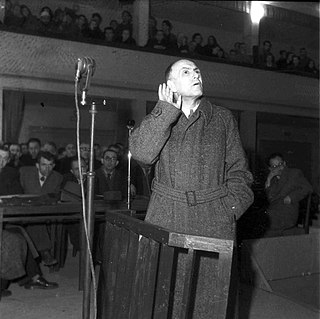
In Albania, World War II began with its invasion by Italy in April 1939. Fascist Italy set up Albania as its protectorate or puppet state. The resistance was largely carried out by Communist groups against the Italian and then German occupation in Albania. At first independent, the Communist groups united in the beginning of 1942, which ultimately led to the successful liberation of the country in 1944.

The Balli Kombëtar, known as Balli, was an Albanian nationalist anti-communist resistance movement and a political organization established in November 1942. It was led by Ali Këlcyra and Midhat Frashëri and was formed by members from the landowning elite, liberal nationalists opposed to communism and other sectors of society in Albania. The motto of the Balli Kombëtar was: "Shqipëria Shqiptarëve, Vdekje Tradhëtarëve". Eventually the Balli Kombëtar joined the Nazi established puppet government and fought as an ally against anti-fascist guerrilla groups.
The Antonio Gramsci Battalion was formed on 9 November 1943 from captured Italian soldiers who wished to continue the war by resisting Nazi German forces in Albania. In the beginning its forces amounted to 137 men who chose their own leaders: Terzilio Cardinali (commander), Alfredo d'Angelo, Giuseppe Monti and Dominico Bogatai. One Albanian partisan, Sami Kotherja, was also appointed to battalion command. The battalion was composed of two companies.

August Schmidhuber was an SS-Brigadeführer of the 7th SS Volunteer Mountain Division Prinz Eugen from 20 January 1944 to 8 May 1945, and the 21st Waffen Mountain Division of the SS Skanderbeg from May 1944 onwards.

The German occupation of Albania occurred between 1943 and 1944 during World War II. Before the armistice between Italy and the Allied armed forces on 8 September 1943, Albania had been in a de jure personal union with and was de facto under the control of the Kingdom of Italy. After the armistice and the Italian exit from the Axis, German military forces entered Albania and it came under German occupation, creating the client-state, the Albanian Kingdom under Mehdi Frashëri.
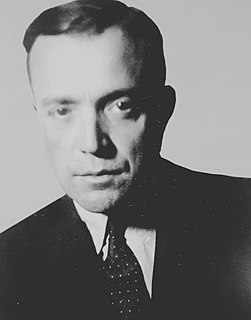
Ibrahim Aqif Biçakçiu was an Albanian landowner and Axis collaborator, Prime Minister of Albania during the Nazi occupation, from September 25 to October 24, 1943 and from August 29 to November 28, 1944.

Maliq Bushati, was an Albanian Axis collaborator, Prime Minister of Albania during the Italian occupation, from 13 February to 12 May 1943.

The Italian invasion of Albania was a brief military campaign by the Kingdom of Italy against the Albanian Kingdom. The conflict was a result of the imperialist policies of Italian dictator Benito Mussolini. Albania was rapidly overrun, its ruler, King Zog I, forced into exile, and the country made part of the Italian Empire as a separate kingdom in personal union with the Italian crown.
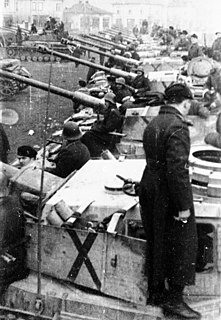
The Kosovo Operation was a series of military operations leading up to one final push during World War II, launched by the Bulgarian army with the assistance of Yugoslav and Albanian Partisans to expel German forces from Kosovo and prevent the retreat of German forces from Greece. German Army Group E was withdrawing through it from Greece towards Bosnia, since the escape route through Niš and Belgrade had been closed by the Yugoslav Partisan, Bulgarian and Soviet forces.
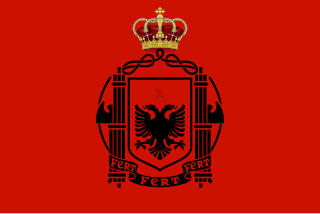
The Italian colonists in Albania were Italians who, between the two world wars, moved to Albania to colonize the Balkan country for the Kingdom of Italy.

The National Liberation Movement, also translated as National Liberation Front, was an Albanian resistance organization that fought in World War II. It was created on 16 September 1942, in a conference held in Pezë, a village near Tirana. Apart from the communist figures which had the majority in the General Council it also included known nationalist figures like Myslim Peza, etc. The Albanian National Liberation Front was later transformed in May 1944 into the government of Albania and its leaders became government members. It was replaced in August 1945 by the Democratic Front.
Josef Fitzthum was a high-ranking member of the SS and Special Representative of the Reichsführer-SS in Albania during World War II.
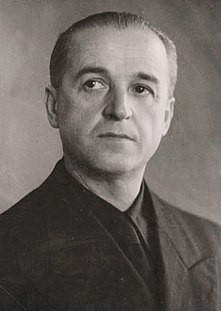
Tefik Selim Mborja was an Albanian politician and lawyer. He served as the general secretary of the Albanian Fascist Party during the Second World War.

Albanian Lictor Youth was a youth organization, the youth wing of the Albanian Fascist Party. The Albanian Youth of the Lictor was one of the associated organizations of the Albanian Fascist Party, as stipulated in its statute, which was formulated in a decree of the Italian vicegerent issued on June 2, 1939.

Mihal Zallari was an Albanian historian, politician, journalist and poet. He served as Chairman of the National Parliament of Albania in 1943–44.
Bernd Jürgen Fischer is historian and professor of history at Indiana University-Purdue University Fort Wayne. He received his Ph.D. in 1982 from the University of California, Santa Barbara. He was elected to the Albanian Academy of Science in 2006 and in 2007, he was appointed to position of special advisor to the Albanian Royal Court.
Hasan Dosti was an Albanian jurist and politician. Being a staunch Albanian nationalist, Dosti was considered by the Albanian communists to be one of their greatest enemies.
Islam Radovicka (1889–1948) was an Albanian partisan commander during World War II.

Aleks Buda was an Albanian historian. After completion of his education in Italy and Austria, he returned to Albania. Although his education was in literature, he made a career as a historian during the socialist period in Albania. He was a member and president of the Academy of Sciences of Albania.
Theodor Geib was German General in Albania during World War II.





